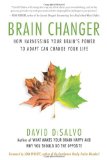new book – ‘The Rise of Consciousness and the Development of Emotional Life’ by Michael Lewis
November 8, 2013
The Rise of Consciousness and the Development of Emotional Life by Michael Lewis (Guilford Press, 2013)
Book description from the publisher:
Synthesizing decades of influential research and theory, Michael Lewis demonstrates the centrality of consciousness for emotional development. At first, infants’ competencies constitute innate reactions to particular physical events in the child’s world. These “action patterns” are not learned, but are readily influenced by temperament and social interactions. With the rise of consciousness, these early competencies become reflected feelings, giving rise to the self-conscious emotions of empathy, envy, and embarrassment, and, later, shame, guilt, and pride. Focusing on typically developing children, Lewis also explores problems of atypical emotional development.
Google Books preview:






